This article was co-authored by Cara Piskai. Dr. Cara Piskai, DMD is an Orthodontist and the Owner of Piskai Orthodontics in Voorhees, New Jersey. She has over five years of experience in orthodontics and dentofacial orthopedics. She completed a Doctor of Dental Medicine degree at the University of Pennsylvania School of Dental Medicine. She completed her residency and earned a Specialty Certificate in Orthodontics and a Master's degree in Oral Sciences at the University of Illinois-Chicago. Dr. Piskai is board-certified by the American Board of Orthodontics and is a member of the American Association of Orthodontists (AAO). She holds a position on the U.S. News & World Report Medical Review Board.
There are 12 references cited in this article, which can be found at the bottom of the page.
wikiHow marks an article as reader-approved once it receives enough positive feedback. This article has 13 testimonials from our readers, earning it our reader-approved status.
This article has been viewed 659,348 times.
Orthodontic braces on your teeth are worth the effort in order to get straightened teeth, but the discomfort that you will likely experience from the braces can be discouraging and uncomfortable. This discomfort is most likely associated with your body responding to the pressure on your teeth, and it can vary depending on your age, stress levels, and whether you are male or female.[1] There is no single cure for getting rid of orthodontic brace pain, but there are remedies that will lessen the pain.
Steps
Changing Your Diet
-
1Eat soft foods for the first few days. The bulk of orthodontic brace pain will happen in the first 24 to 72 hours after braces are put on your teeth. During the first few days, eat very soft foods that don’t require much chewing until you are more accustomed to eating with braces. Foods like soups, applesauce and mashed potatoes are good choices.[2]
-
2Eat cold or frozen foods like ice cream. Ice cream will give your mouth relief by offering numbing comfort. You can also suck on ice cubes. Put an ice cube in your mouth next to the area that is experiencing the most discomfort. The frozen cube will help numb your mouth and reduce any inflammation that may be occurring.A lot of braces are heat-reactive, which means eating hot foods causes the braces to tighten, causing you pain.[3]
- Alternatively, you can freeze a baby teething ring and chew or rest it in your mouth. This will also provide some relief.
- Do not chew the ice or ice cubes; hard foods can damage brackets and weaken their hold on your teeth.
- You could also try drinking icy cold water.
Advertisement -
3Avoid acidic drinks and foods. Acidic foods and drinks that contain citrus, for example, can aggravate mouth sores or other discomfort in your mouth. Avoid these to eliminate the possibility of further irritating your mouth.
-
4Avoid hard or sticky foods. Do not eat certain kinds of foods so that your braces do not break, causing some irritation and additional cost. Hard and sticky foods, such as chips, jerky, gummies, nuts, popcorn and taffy, can be damaging to your braces.[4] [5]
- Do not chew on other hard objects, such as pens, pencils or ice cubes.
- Some foods can be modified to be braces-friendly. For instance, you can cut apples into slices or cut corn off of the cob before eating.[6]
Using Oral Treatments to Relieve Discomfort
-
1Take an over-the-counter pain reliever. Pain relievers such as acetaminophen (Tylenol) can offer some relief from the discomfort of braces.[7] Take a dose of acetaminophen (usually two tablets) every four hours.[8]
- Follow the instructions on the label to ensure proper dosage.
- You can also take ibuprofen (Advil) instead of Tylenol, although some dentists and orthodontists discourage ibuprofen because it can slow down the process of your teeth moving. At the very least, do not take both kinds of medication – choose one!
-
2Use a topical anesthetic to numb the pain. There are a number of over-the-counter medications available that can numb the mouth discomfort that you are experiencing. These are typically anesthetic, meaning that they numb the pain for a few hours, and they come in mouthwashes, rinses and gels. Products such as Orajel and Colgate Orabase can provide some relief.[9]
- Follow the instructions on the package for proper application. Some people experience allergies when using these products, so you should be sure to consult the instructions before proceeding.
-
3Rinse your mouth with salt water. Salt water will soothe your mouth and treat any sores that may have developed because of the braces rubbing against your cheeks.[10] To make a salt water rinse, put a teaspoon of table salt into a glass of warm water. Stir to dissolve all of the salt. Put a mouthful of this mixture into your mouth and gently swish it around for about one minute. Spit it out in the sink.[11]
- Repeat several times a day, particularly in the first few days and whenever you are feeling more pain than normal.[12]
-
4Rinse your mouth with diluted hydrogen peroxide. Hydrogen peroxide is an antiseptic and can reduce inflammation that irritates your mouth. Mix one part water with one part 3% hydrogen peroxide in a glass. Put a mouthful of this mixture in your mouth and gently swish it around for about one minute. Spit it out in the sink. Repeat a few times a day.
- There are hydrogen peroxide-based products available at grocery and drug stores that are geared toward treating mouth sores and offering relief, such as Colgate Peroxyl Mouthwash.
- The taste of hydrogen peroxide might be off-putting to some people, as is the foam that will inevitably generate from swishing it in your mouth.
-
5Apply orthodontic wax to your mouth.[13] Orthodontic or dental wax is used as a barrier between your braces and the inside of your mouth. It is readily available at drug stores; your orthodontist may have given you some when you got your braces.[14]
- To apply the wax, break off a small piece of wax and roll it into a little ball about the size of a pea to warm it up and make it easier to apply.[15] Use a piece of tissue or cotton to dry the area of your braces where you would like to apply the wax, and press it directly onto the wire or bracket.[16] Repeat as often as necessary.
-
6Wear the rubber bands that came with your braces. These mini rubber bands are hooked around your braces, helping to align your braces and jaw in a certain way. They can help in reducing the amount of time needed to straighten your teeth, so wearing them is definitely to your benefit. Your orthodontist will likely instruct you to wear them as much as possible except when eating or brushing, and to replace them frequently.
- These rubber bands can often cause discomfort, especially in the first few days after you get your braces. But they can cause more discomfort if you are not used to wearing them. If you only wear them a couple of hours per day or a few times a week, you will experience more discomfort than if you wear them all the time.
Changing Your Teeth Cleaning Habits
-
1Choose a toothpaste for sensitive teeth. Most brands of toothpaste make a special toothpaste for sensitive teeth. These contain a chemical, potassium nitrate, which helps reduce sensitivity by protecting the nerves in your gums. Most of these toothpastes use a synthetic form of potassium nitrate, although some natural toothpaste brands such as Tom’s of Maine use a natural form.[17] Both forms of potassium nitrate are safe to use.
- Follow the directions on the toothpaste tube for proper usage.
-
2Use a soft-bristled toothbrush. The bristles on toothbrushes can range from soft to firm. The softer the bristles, the more gentle it will be on your teeth and gums when you brush your teeth. Choose a toothbrush that has soft bristles.[18]
-
3Brush gently. If you have a habit of brushing hard on your teeth, this will be especially painful for you in the first few days after you get your braces. Be gentle on your teeth, slowly and carefully brushing in a circular motion. Take your time when brushing and when opening your mouth wide.
-
4Brush and floss after every meal. When you have braces, you need to brush and floss after every time you eat, even when you are out of the house.[19] Without this attentive care to your teeth, you risk getting cavities, swollen gums or other tooth problems. During the time you wear braces, your teeth need extra care.[20]
- Carry a travel toothbrush, a mini tube of toothpaste and a small packet of floss with you when you are away from home so that you are always prepared to brush after eating.
- Make sure to brush all the teeth surface using a 45-degree angle with your brush to avoid plaque build-up near your gums.[21]
Visiting your Orthodontist
-
1Give your braces a trial period before visiting the orthodontist. Some pain is expected when braces are first put on your teeth. If, however, you are still experiencing intolerable pain after a few weeks, you may want to visit your orthodontist to check in and ask questions.[22]
-
2Ask your orthodontist to loosen your braces. If the pain from your braces is too intense, it is possible that they are too tight. Having tighter braces does not necessarily mean that they will work better or that your teeth will straighten faster. Ask your orthodontist’s opinion about the tightness of the braces.[23]
-
3Have your orthodontist snip protruding wires on your braces. Sometimes, there are short ends of wires on the braces that will protrude and rub against the inside of your cheek. These can be extremely uncomfortable and cause mouth sores. If you have these, ask your orthodontist to snip the ends off of these wires, and you should feel immediate relief.[24] [25]
-
4Ask for prescription strength medication or other treatment. Your orthodontist might be able to prescribe a stronger dose of ibuprofen for you if regular over-the-counter medications don’t seem to be working.
- Your orthodontist might also recommend other treatments, such as a bite wafer. This is a product that you bite on for a few minutes several times every hour. The motion of biting helps generate blood circulation in your gums, which can ease pain.[26]
-
5Ask for additional strategies for reducing pain or discomfort. Your orthodontist may have recommendations that will help you figure out your specific case and pain management plan. They have worked with many different people and have seen a number of different remedies that have worked for patients.
Preparing for a Readjustment
-
1Get your timing right. There is not a lot of leeway in when you might be able to schedule an appointment for a readjustment of your braces. But if you can, plan for a day when you do not have major deadlines or other activities that demand concentration and focus. Try to schedule an appointment towards the end of the day so you can go home immediately after the appointment and rest.
-
2Stock up on soft foods. Your mouth will be sensitive again for a couple of days after you get your braces readjusted and/or tightened. You should plan to eat soft foods like mashed potatoes, pudding, soups and similar foods for a couple of days.[27]
-
3Take a pain reliever before the appointment. Take an acetaminophen tablet before your appointment so that it will go into effect during your appointment. This way, the pain and discomfort will be lessened immediately. Take another pain reliever 4-6 hours after the first one to continue to manage your pain![28]
-
4Talk with your orthodontist about your concerns. Now is the time to tell your orthodontist if you are having any issues with your braces or if you are noticing problems such as headaches or mouth sores that are not healing. There may be other adjustments that can be made to help alleviate or address these problems.
Expert Q&A
-
QuestionHow long will my teeth hurt after braces are put on?
 Lewis Chen, DDS, FICOI, FIADFEDr. Lewis Chen is a licensed Dentist in both New York and New Jersey, specializing in providing high-quality oral care in the form of preventative care. He holds an Economics degree from New York University. Dr. Chen earned his doctorate at Columbia University College of Dental Medicine. He graduated top of his class with the highest honors and distinction and was nominated and inducted into the only renowned, national dental honor society, Omicron Kappa Upsilon (OKU). He then completed a comprehensive training program at the Bronx VA Medical Center and, shortly after, decided to pursue multiple practice ownership and management. Dr. Chen has acquired numerous accolades over the years, including New York Academy of Dentistry Exemplary Professional Conduct Award, Academy of General Dentistry Outstanding General Practitioner Award, American Academy of Implant Dentistry Award, and Pierre Fauchard Foundation Award.
Lewis Chen, DDS, FICOI, FIADFEDr. Lewis Chen is a licensed Dentist in both New York and New Jersey, specializing in providing high-quality oral care in the form of preventative care. He holds an Economics degree from New York University. Dr. Chen earned his doctorate at Columbia University College of Dental Medicine. He graduated top of his class with the highest honors and distinction and was nominated and inducted into the only renowned, national dental honor society, Omicron Kappa Upsilon (OKU). He then completed a comprehensive training program at the Bronx VA Medical Center and, shortly after, decided to pursue multiple practice ownership and management. Dr. Chen has acquired numerous accolades over the years, including New York Academy of Dentistry Exemplary Professional Conduct Award, Academy of General Dentistry Outstanding General Practitioner Award, American Academy of Implant Dentistry Award, and Pierre Fauchard Foundation Award.
Licensed Dentist It really depends on your particular teeth. I can confidently say that you should get used to the feeling and the pain should mostly go away after a few days or weeks, though.
It really depends on your particular teeth. I can confidently say that you should get used to the feeling and the pain should mostly go away after a few days or weeks, though. -
QuestionWhy does orthodontic wax help?
 Lewis Chen, DDS, FICOI, FIADFEDr. Lewis Chen is a licensed Dentist in both New York and New Jersey, specializing in providing high-quality oral care in the form of preventative care. He holds an Economics degree from New York University. Dr. Chen earned his doctorate at Columbia University College of Dental Medicine. He graduated top of his class with the highest honors and distinction and was nominated and inducted into the only renowned, national dental honor society, Omicron Kappa Upsilon (OKU). He then completed a comprehensive training program at the Bronx VA Medical Center and, shortly after, decided to pursue multiple practice ownership and management. Dr. Chen has acquired numerous accolades over the years, including New York Academy of Dentistry Exemplary Professional Conduct Award, Academy of General Dentistry Outstanding General Practitioner Award, American Academy of Implant Dentistry Award, and Pierre Fauchard Foundation Award.
Lewis Chen, DDS, FICOI, FIADFEDr. Lewis Chen is a licensed Dentist in both New York and New Jersey, specializing in providing high-quality oral care in the form of preventative care. He holds an Economics degree from New York University. Dr. Chen earned his doctorate at Columbia University College of Dental Medicine. He graduated top of his class with the highest honors and distinction and was nominated and inducted into the only renowned, national dental honor society, Omicron Kappa Upsilon (OKU). He then completed a comprehensive training program at the Bronx VA Medical Center and, shortly after, decided to pursue multiple practice ownership and management. Dr. Chen has acquired numerous accolades over the years, including New York Academy of Dentistry Exemplary Professional Conduct Award, Academy of General Dentistry Outstanding General Practitioner Award, American Academy of Implant Dentistry Award, and Pierre Fauchard Foundation Award.
Licensed Dentist So, you put the wax over the brackets where the low prongs or hooks stick out. The wax keeps these prongs or hooks from irritating or scratching the inside of your mouth.
So, you put the wax over the brackets where the low prongs or hooks stick out. The wax keeps these prongs or hooks from irritating or scratching the inside of your mouth. -
QuestionAre there any medications I can take to relieve the pain?
 Lewis Chen, DDS, FICOI, FIADFEDr. Lewis Chen is a licensed Dentist in both New York and New Jersey, specializing in providing high-quality oral care in the form of preventative care. He holds an Economics degree from New York University. Dr. Chen earned his doctorate at Columbia University College of Dental Medicine. He graduated top of his class with the highest honors and distinction and was nominated and inducted into the only renowned, national dental honor society, Omicron Kappa Upsilon (OKU). He then completed a comprehensive training program at the Bronx VA Medical Center and, shortly after, decided to pursue multiple practice ownership and management. Dr. Chen has acquired numerous accolades over the years, including New York Academy of Dentistry Exemplary Professional Conduct Award, Academy of General Dentistry Outstanding General Practitioner Award, American Academy of Implant Dentistry Award, and Pierre Fauchard Foundation Award.
Lewis Chen, DDS, FICOI, FIADFEDr. Lewis Chen is a licensed Dentist in both New York and New Jersey, specializing in providing high-quality oral care in the form of preventative care. He holds an Economics degree from New York University. Dr. Chen earned his doctorate at Columbia University College of Dental Medicine. He graduated top of his class with the highest honors and distinction and was nominated and inducted into the only renowned, national dental honor society, Omicron Kappa Upsilon (OKU). He then completed a comprehensive training program at the Bronx VA Medical Center and, shortly after, decided to pursue multiple practice ownership and management. Dr. Chen has acquired numerous accolades over the years, including New York Academy of Dentistry Exemplary Professional Conduct Award, Academy of General Dentistry Outstanding General Practitioner Award, American Academy of Implant Dentistry Award, and Pierre Fauchard Foundation Award.
Licensed Dentist Any over-the-counter analgesic, like Motrin or Tylenol, should help to take the edge off.
Any over-the-counter analgesic, like Motrin or Tylenol, should help to take the edge off.
Expert Interview
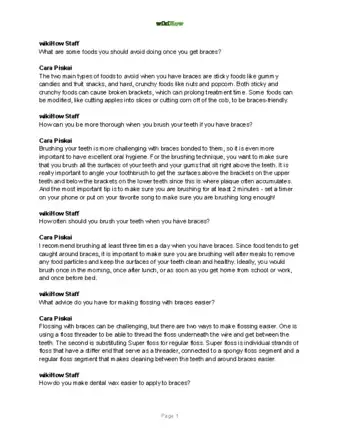
Thanks for reading our article! If you'd like to learn more about pain from braces, check out our in-depth interview with Cara Piskai.
References
- ↑ https://www.ncbi.nlm.nih.gov/pmc/articles/PMC4932774/
- ↑ https://doyleortho.com/9-effective-tips-on-how-to-relieve-braces-pain/
- ↑ https://doyleortho.com/9-effective-tips-on-how-to-relieve-braces-pain/
- ↑ https://orthodonticsaustralia.org.au/why-do-your-braces-hurt/
- ↑ Cara Piskai. Orthodontist. Expert Interview. 20 December 2022.
- ↑ Cara Piskai. Orthodontist. Expert Interview. 20 December 2022.
- ↑ Cara Piskai. Orthodontist. Expert Interview. 20 December 2022.
- ↑ https://bmcoralhealth.biomedcentral.com/articles/10.1186/s12903-020-01245-w
- ↑ https://academic.oup.com/ejo/article/29/2/170/522873?login=false
- ↑ Cara Piskai. Orthodontist. Expert Interview. 20 December 2022.
- ↑ https://orthodonticsaustralia.org.au/why-do-your-braces-hurt/
- ↑ Cara Piskai. Orthodontist. Expert Interview. 20 December 2022.
- ↑ Cara Piskai. Orthodontist. Expert Interview. 20 December 2022.
- ↑ Lewis Chen, DDS, FICOI, FIADFE. Licensed Dentist. Expert Interview. 3 June 2021.
- ↑ Cara Piskai. Orthodontist. Expert Interview. 20 December 2022.
- ↑ Cara Piskai. Orthodontist. Expert Interview. 20 December 2022.
- ↑ https://www.mouthhealthy.org/~/media/ada/publications/files/patient_33.pdf
- ↑ https://my.clevelandclinic.org/health/symptoms/10954-teeth-sensitivity
- ↑ Cara Piskai. Orthodontist. Expert Interview. 20 December 2022.
- ↑ https://my.clevelandclinic.org/health/symptoms/10954-teeth-sensitivity
- ↑ Cara Piskai. Orthodontist. Expert Interview. 20 December 2022.
- ↑ Lewis Chen, DDS, FICOI, FIADFE. Licensed Dentist. Expert Interview. 3 June 2021.
- ↑ Lewis Chen, DDS, FICOI, FIADFE. Licensed Dentist. Expert Interview. 3 June 2021.
- ↑ https://jupiterorthodontics.com/braces-pain-relief/
- ↑ Cara Piskai. Orthodontist. Expert Interview. 20 December 2022.
- ↑ https://academic.oup.com/ejo/article/29/2/170/522873?login=false
- ↑ https://www.stpetedentist.com/blog/how-to-prepare-for-braces/
- ↑ https://www.stpetedentist.com/blog/how-to-prepare-for-braces/
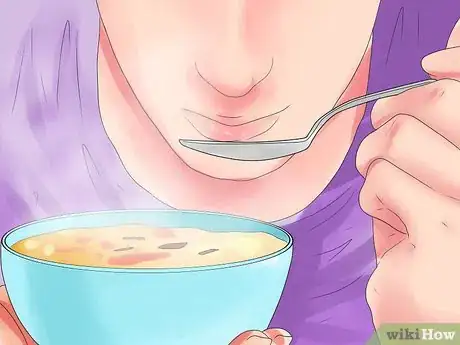
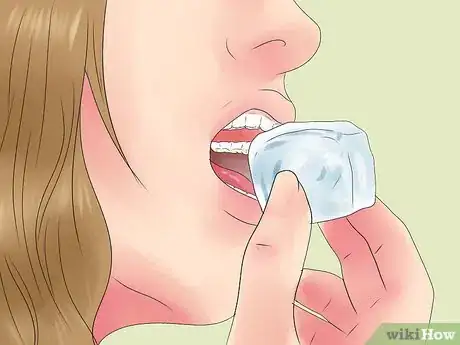
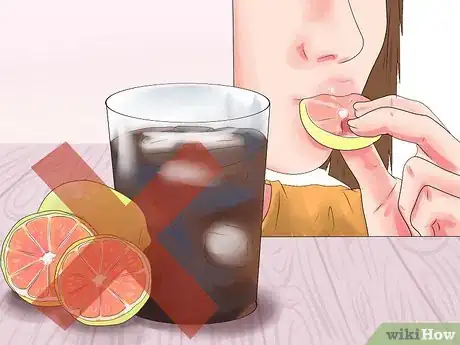
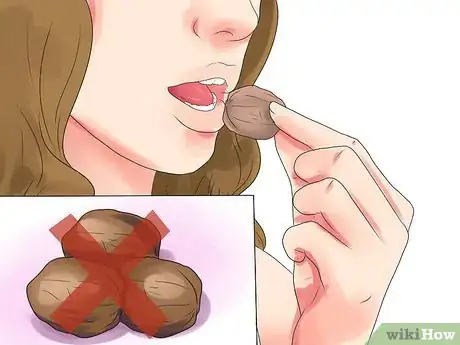

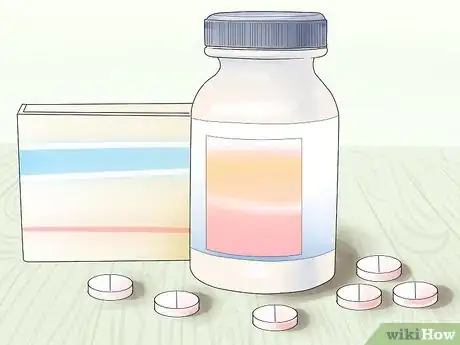
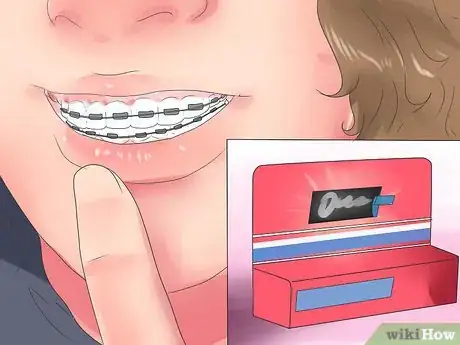
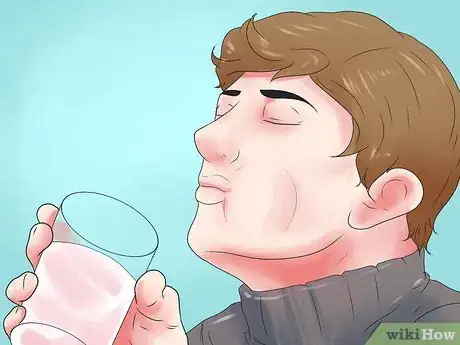
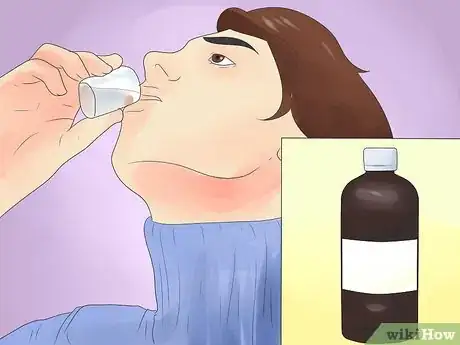
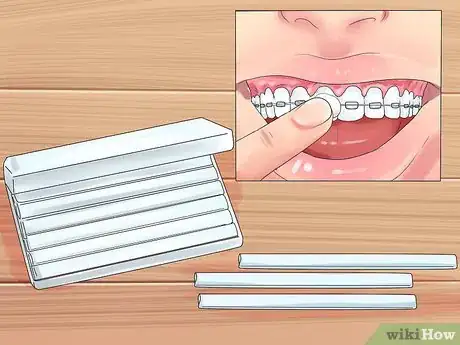

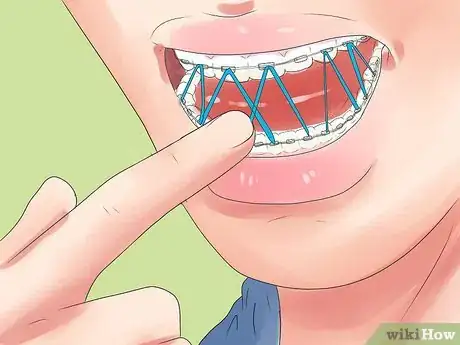
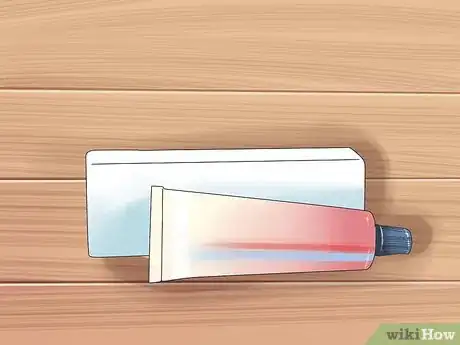
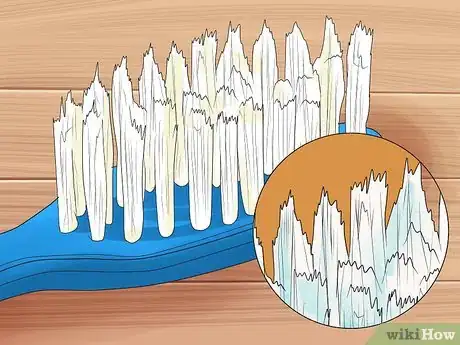
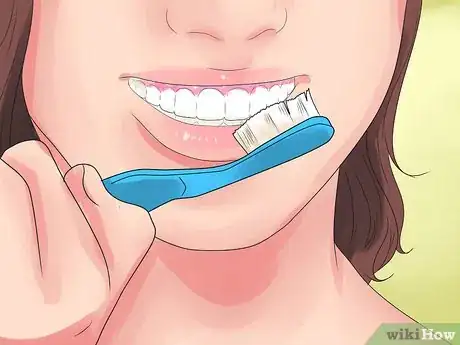
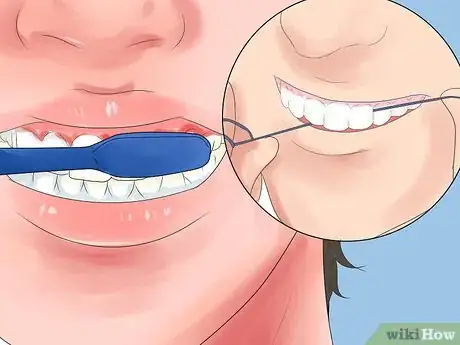
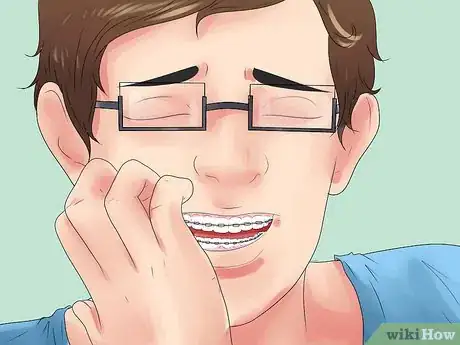
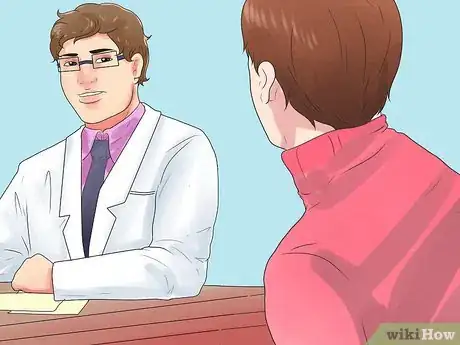
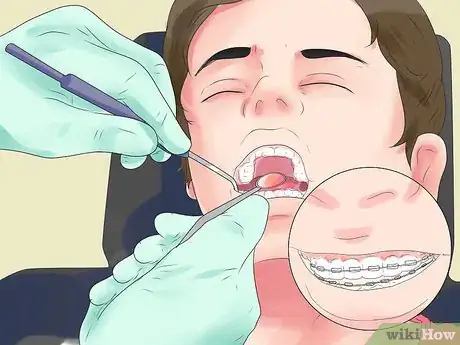
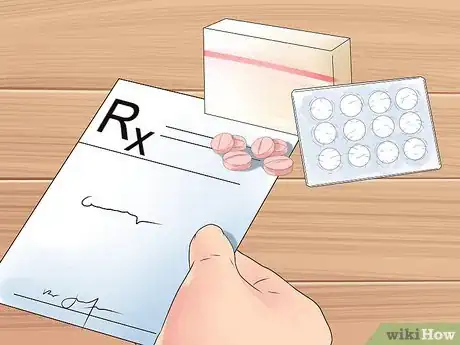
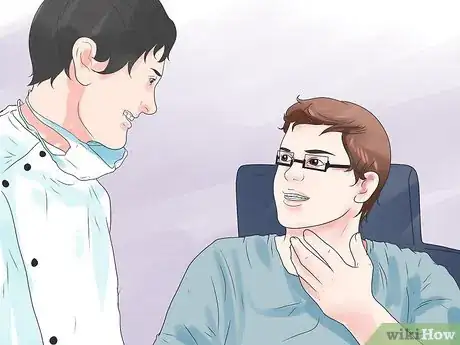
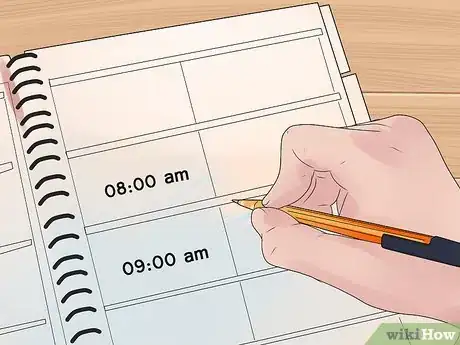
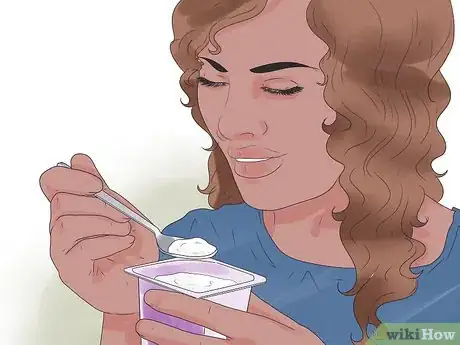
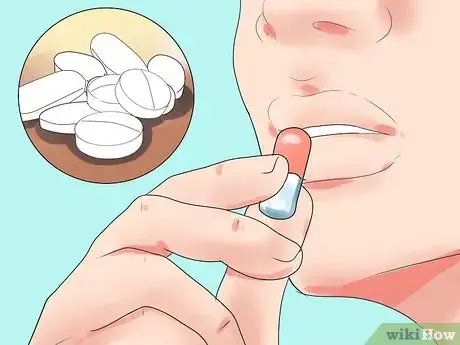
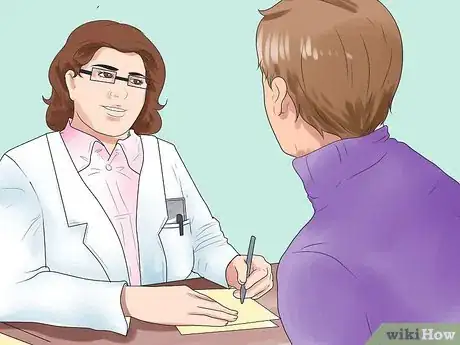
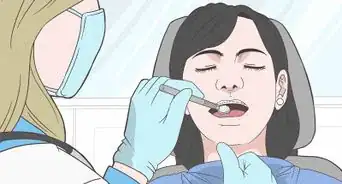
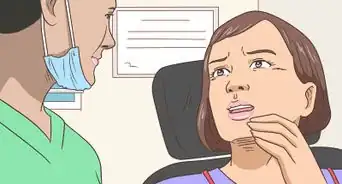

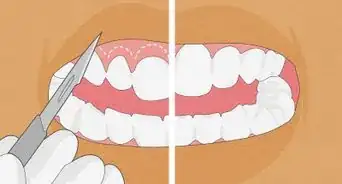
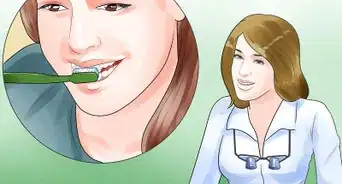
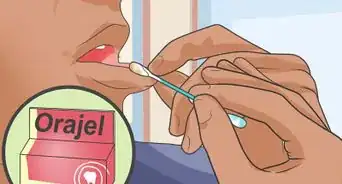

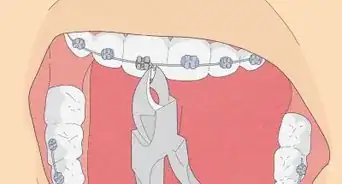
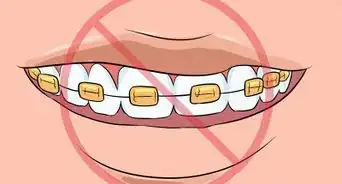
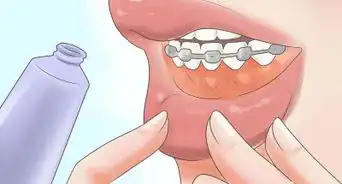
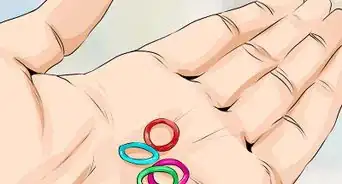
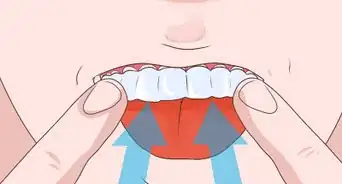
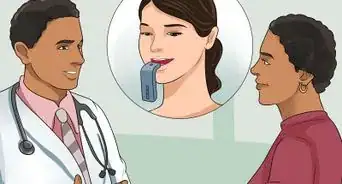
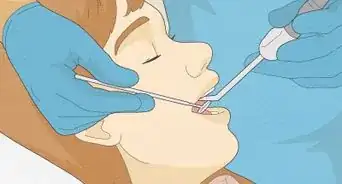








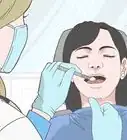


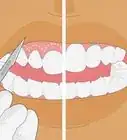



































Medical Disclaimer
The content of this article is not intended to be a substitute for professional medical advice, examination, diagnosis, or treatment. You should always contact your doctor or other qualified healthcare professional before starting, changing, or stopping any kind of health treatment.
Read More...